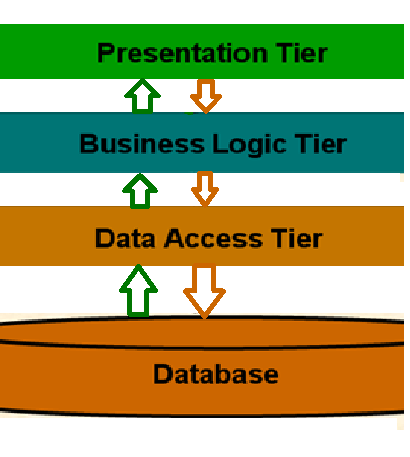Type Casting of Reference Types in Asp.net C#
Type Casting of Reference Types in Asp.net C#:
In this post we try to understand Type Casting of Reference Types . in this post we are going to learn about Type casting of reference type with example in C#
A reference variable of type parent can refer to an object of child class
because all the members which the reference variable can access exist in memory when the object is of child class.
A reference variable of child cannot refer to an object of parent class
because the child class members that the reference variable can access do not exist in memory when the object is of parent class.
C# Program Example:
{
public
int PubA1;
private
int PriA1;
protected
int ProA1;
public
CParent()
{ }
public
CParent(int a, int b, int c) : this()
{
this.PriA
1= a;
this.ProA1
= b;
this.PubA1
= c;
}
}
public class CChild : CParent
{
public
int pubB; public CChild() //First calls parent class constructor.
{ }
public
CChild(int a, int b, int c, int d) : base(a, b, c)
{
//this.PriA1
= a;
this.ProA1
=b;
this.PubA1
= c;
this.pubB1
= d;
}
public
void Foo()
{
CParent
p = new CParent();
CChild
c = new CChild();
ProA1
= 10;
c.ProA1
= 10; }
}
class Program
{
static
void Main(string[] args)
{
CChild
b; b = new CChild(1, 2, 3, 4);
b.Foo();
}
}



csharp language examples to write codes
ReplyDeletec# sample program Insert Button to a Panel